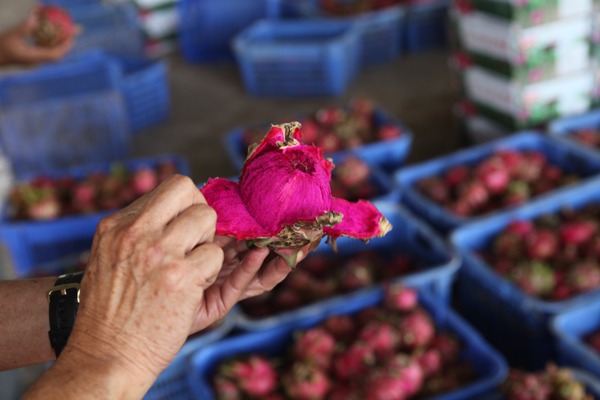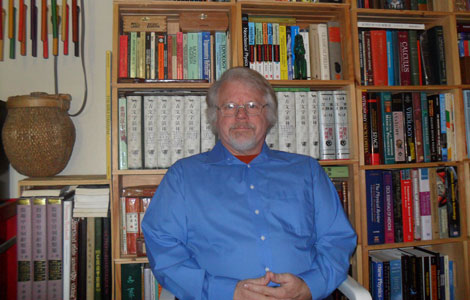Chasing the dragons
Updated: 2013-10-08 00:47
By Li Yang (China Daily)
|
||||||||
|
 |
|
Liew not only cultivates pitaya but also hopes to make it into vinegar, wine and cosmetics. |
Most of the farmers stayed to work for him in the farms and factories, which process 50,000 tons of pitaya a year.
Liew's connection with agriculture dates back to childhood. His father died when he was seven, leaving his mother, a rubber tapper, to bring up two sons and a daughter.
He became a farmer in the 1970s after graduating from middle school in Ipoh, a city in northern Peninsula Malaysia. To support his siblings through school, Liew worked among rubber trees, oil palms and coconut palms. He later left to study agriculture management in Alberta, Canada.
In 2000, he took his master's degree at age 50.
"Agriculture is indispensable for developing countries. Industrialization should not be an excuse for developing countries to ignore agriculture," he says, sharing his insights on life.
Chinese farmers have done a great job in raising more than one fifth of the world population with only 5 percent of the world's cultivated land.
"That's why their life is not easy. But there are some other new concerns today in China," he points out. "Big international agricultural and food companies have controlled China's soybean industries by monopolizing most of the edible oil-pressing mills since the 1990s."
Liew says this lesson must be learnt and avoided in other fields, such as corn and rice.
"China should try to make breakthroughs in agricultural technology and management to win back its competence in the area", he notes. "It is hard to carry out mechanized farming in small patches of land owned by different families. The government can encourage farmers to pool resources to promote mechanized agriculture, with small machines to improve efficiency."
He says the "red line" of 12 million hectares of farmland must be guarded and soil quality must be maintained in the era of rapid urbanization.
Letting the land lie fallow is the best way to improve soil and plant quality, instead of the universal practice of applying chemical fertilizers and pesticides, he says.
"Chinese farmers use too much pesticide. They drown, instead of poison, the insects."
The answer is for food safety supervisors to take their jobs seriously to prevent the farmers from doing so and indirectly avoid the food safety crisis.
Liew believes that local governments at county and town level have the responsibility to help farmers follow market changes and help farmers choose what to plant for the best returns, and to help farmers' cooperatives connect with supermarkets directly to reduce the costs of middlemen.
"However successfully China has developed in economy and industry, it must ensure the sustainable development of its agricultural sector and protect the farmers' interests.
"Agriculture and farmers form the foundation of the nation."

 Victoria Beckham S/S 2014 presented during NYFW
Victoria Beckham S/S 2014 presented during NYFW
 'Despicable' minions upset Depp's 'Lone Ranger' at box office
'Despicable' minions upset Depp's 'Lone Ranger' at box office
 'Taken 2' grabs movie box office crown
'Taken 2' grabs movie box office crown
 Rihanna's 'Diamonds' tops UK pop chart
Rihanna's 'Diamonds' tops UK pop chart
 Fans get look at vintage Rolling Stones
Fans get look at vintage Rolling Stones
 Celebrities attend Power of Women event
Celebrities attend Power of Women event
 Ang Lee breaks 'every rule' to make unlikely new Life of Pi film
Ang Lee breaks 'every rule' to make unlikely new Life of Pi film
 Rihanna almost thrown out of nightclub
Rihanna almost thrown out of nightclub
Most Viewed
Editor's Picks

|

|

|

|

|

|
Today's Top News
WB cuts growth forecast for China, East Asia
Kerry hails weapons destruction
Robust home sales during holiday
China calls on the United States to stay solvent
Beijing targets polluting cars
APEC 'should take lead' in FTA talks
US, Japan warned over sea issues
Academics evaluate China at conference
US Weekly

|

|







